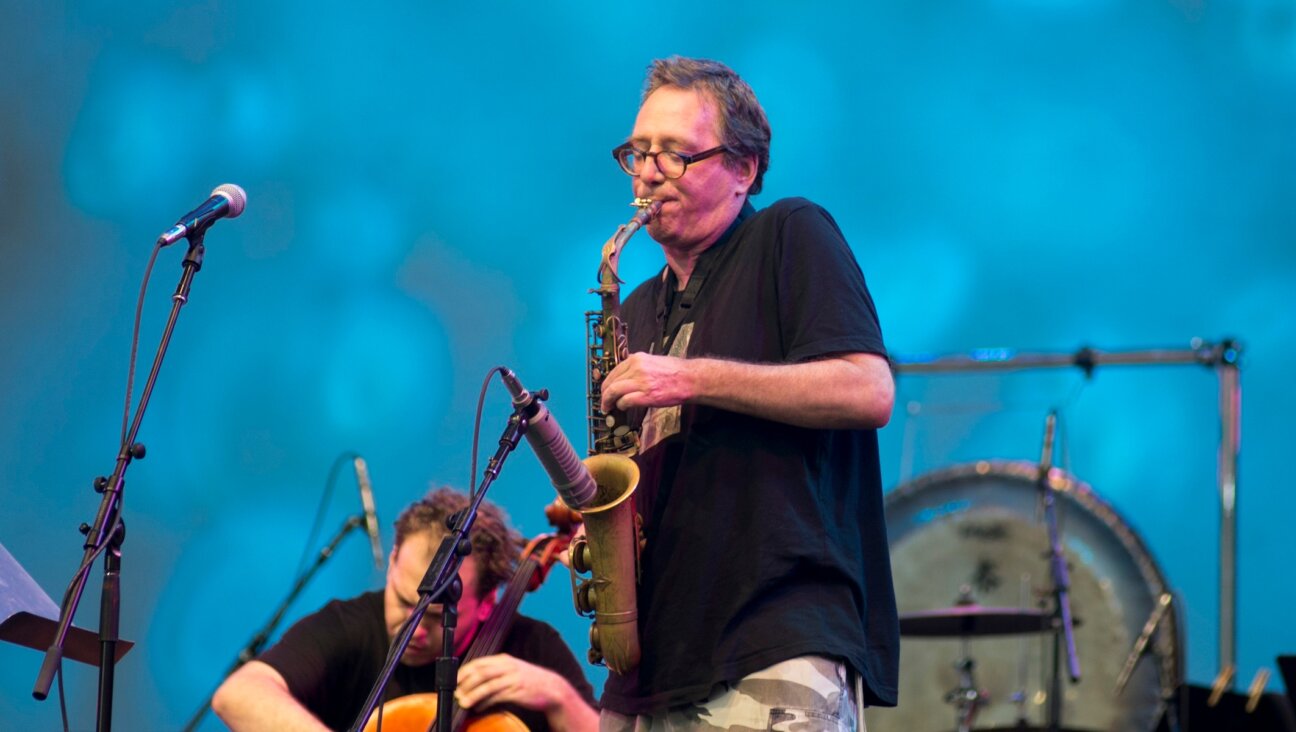John Zorn’s avant-garde Jewish music is finally on Spotify. His fans remain locked in debate.
In the past, and apparently on principle, Zorn did not work with streaming services

In the past, and apparently on principle, Zorn did not work with streaming services

In 1993, John Zorn began composing music based on Jewish themes for a new group, Masada Quartet. Now, 25 years and 613 tunes later, Zorn is closing the book — literally and figuratively — on what evolved into a sprawling, genre-defying series of hundreds of compositions written for dozens of different ensembles, all united by…

John Zorn’s East Village apartment is like his music: an exceptionally-concentrated, perfectl- composed space celebrating the artistic experience. Thousands of records and tapes and CDs and books, well-ordered, each tug at the visitor’s elbow for attention. For many years, John Zorn — composer, performer, arranger, independent music distributor — has been a major voice in…

Shanir Blumenkranz’s extensive contribution to the world of radical Jewish music can only be compared to Robbie Shakespeare’s formative influence on reggae. Blumenkranz plays on numerous projects issued by the Tzadik label — so many of them, in fact, that his recognizable style of bass playing is virtually inseparable from the sound has come to…

Unlike their pudgy, cherubic, church-tending counterparts, in Jewish mythology angels are not what you’d call angelic. Ominous and conflicted, with a penchant for irony and obscure turns of phrase, they are messages from the personal and collective subconscious for us to wrestle with. These angels create the parameters of our formative and deformative moments. Perhaps…

The CD case to John Zorn’s first Christmas record, “A Dreamers Christmas,” comes as a sort of stocking. Reaching into the sleeve you’ll find, along with the CD, a sheet of stickers that could represent a new line of holiday-themed Giga Pets. You might be tempted to over-think this album, with its cute and somewhat…

Jay Michaelson pays a visit to John Zorn’s Masada Marathon at the New York City Opera, and re-interprets the four sons of the Haggadah as characters from “Glee.” Eli Valley re-interprets the four sons in light of the Egyptian Revolution. Philologos has difficulties and questions, both. Meredith Ganzman looks back on the career of Rochelle…

“Rockets on the Balcony,” Omer Klein’s fourth album and his Tzadik Records debut, is also his first self-consciously Jewish record. In the liner notes, Klein explains that when John Zorn first approached him about the project, he was reluctant to make “calculated evaluations as to what counts as Jewish music and what doesn’t.” But over…








100% of profits support our journalism